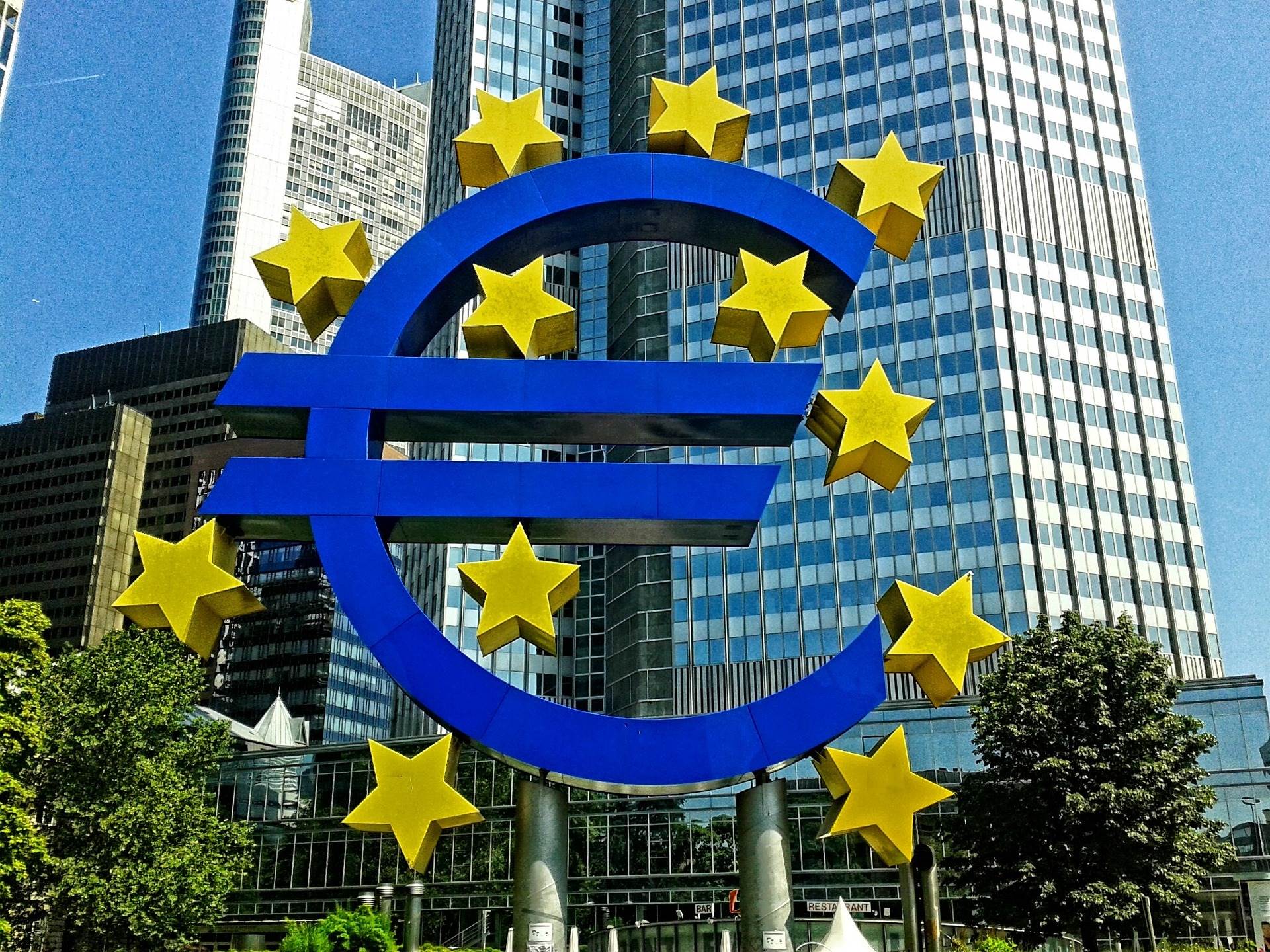
One of the main roles of any modern central bank is keeping prices stable, and to achieve this goal there are many approaches or "doctrines" that the institutions adopt, among them one of the most popular ones is the "inflation targeting" policy.
Inflation targeting is a strategy that became popular mainly in the 90's (before then, central banks tended to focus on the currency market), and since then many central banks in the first world adopted this monetary policy among them, though not officially, the European Central Bank (or ECB).
When a central bank has an "inflation target", it usually adjusts the interest rates in order to keep inflation levels near to that target. Thus Central Banks usually would increase the interest rates in order to slow inflation and economic growth, while it would cut the interest rates to boost them. According to empirical evidence, this seems to work in practice and helps to make central banks accountable and to guarantee price stability.
But not everything is good as it seems and as any experimented economist knows not all policies or economic strategies have the expected outcome all the time, and we can see this especially on everything concerning the European Central Bank's monetary policy.
The ECB's inflation target is at 2 percent, and the way the bank makes sure the actual inflation rate coincides with this target is manipulating the interest rates and or increasing liquidity in the market through conventional Open Market Operations. This worked more or less until the 2008 financial crisis, and since then, the ECB struggles to keep inflation near or at the 2 percent level.
We could blame the bank for not expanding its horizons and sticking to the conventional policymaking tools, however, assuming this would be extremely unfair, as the Bank has employed a whole range of non-conventional tools, like keeping negative interest rates, targeted longer-term refinancing operations (better known as TLTROs), forward guidance and the (in)famous "quantitative easing."
And this was, in fact, what the Bank announced on its last monetary policy stance: cutting the interest rates by 10 basis points, announcing its willingness to use quantitative easing (despite it's heavily controversial) and promoting lending through TLTROs.
However, it seems that the ECB strategy is simply not working and that instead of going towards the bank's preferred scenario, the economy may be facing further deflation in the future. The Eurozone producer prices, for instance, fell 0.5 percent (month-to-month) in August, and the latest Eurozone inflation figure was at 0.9 percent, falling from august's 1 percent.
This makes sense as the eurozone economy is currently experiencing a slowdown, mainly because important Eurozone economies like Germany are not immune to the global tensions caused by Trump trade wars and the Brexit political crisis. The Eurozone is also experiencing "structural" deflationary pressures, like technological progress, a more globalized labor market, and adverse demographic conditions.
Market agents and analysts are now calling for further stimulus, however, some have suggested that the Bank, despite still having more room to maneuver, needs help from Fiscal Policymakers.
“Fiscal policy playing a more supportive role alongside monetary policy would lead to a faster return to price stability and therefore fewer side effects,” said the ECB president Mario Draghi on Tuesday, “Monetary policy will continue to do its job, “If fiscal and structural policies also play their role in parallel -- and more so than we see today -- the side effects of monetary policy will be less, and the return to higher rates of interest will be faster," he added.
Not everyone agrees with this approach, of course, for example, the chief executive of the European insurer, Allianz Oliver Bäte recently criticized Draghi's request, accusing him of not being independent and disregarding the necessity of further public spending in the Eurozone.
“The reason why we’re not doing fiscal is that you’re making it easy for people to spend money they don’t have,” explained Bäte, “I’m sorry. We actually created independent central banks in order to have this not happen, to have central banks not print money. say Draghi is independent. No, he isn’t,” he added.
Opposition to a more unified fiscal approach in the Eurozone is among the main political tensions the Union has the face internally since countries like Germany usually don't favor those "risky" methods and, in fact, tend to oppose non-conventional monetary policy stances like the current one.
Whether it's better for the ECB to review its current monetary policy stance (The ECB doesn't review its stance since 2003!) or it should just further push for fiscal aids is still not clear, and the answer to this dilemma may depend on the reader's policy preferences.
By 10:50 GMT the EUR/USD fell 0.03 percent, at 1.0955. The EUR/JPY was at 117.32, losing 0.12 percent, while the EUR/CHF went up 0.36 percent, at 1.0961.
